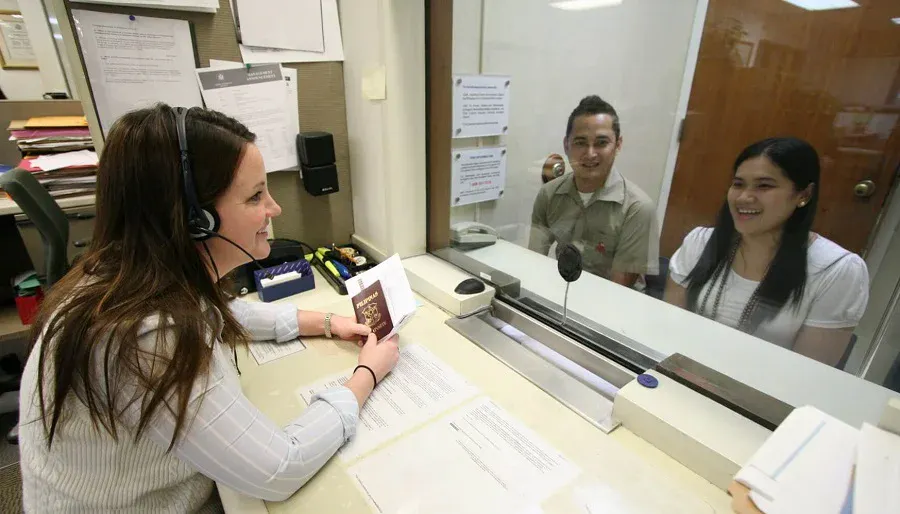
How to Ace Your F-1 Visa Interview
Securing an F-1 visa is a crucial step for international students aspiring to study in the United States. The interview process can be daunting, but with thorough preparation and a clear understanding of what to expect, you can approach it with confidence. Here’s a comprehensive guide to help you ace your F-1 visa interview.
1. Understand the Purpose of the F-1 Visa Interview
- Assessment of Intentions: The consular officer will evaluate whether your primary purpose for going to the U.S. is to study and whether you plan to return to your home country after completing your education.
- Financial Stability: You must demonstrate that you have sufficient funds to cover your tuition and living expenses for the duration of your studies.
- Academic Preparedness: The officer will check if you are academically prepared and qualified to undertake the course of study you intend to pursue.
2. Prepare Your Documents
Having all required documents organized and ready is crucial. Here’s a checklist of essential documents:
- Valid Passport: Ensure it is valid for at least six months beyond your intended stay in the U.S.
- Form DS-160 Confirmation: Print and keep the confirmation page of the DS-160 online application form.
- Form I-20: Issued by your U.S. school, this form confirms your admission and the start date of your program.
- Visa Appointment Confirmation: Proof of your scheduled interview appointment.
- SEVIS Fee Receipt: Proof of payment for the Student and Exchange Visitor Information System (SEVIS) fee.
- Passport-Sized Photos: Follow the U.S. visa photo requirements.
- Academic Documents: Transcripts, diplomas, standardized test scores (like TOEFL, GRE, SAT), and any other relevant certificates.
- Financial Documents: Bank statements, financial affidavits, scholarship letters, or any other proof of funding.
- Ties to Home Country: Documents that demonstrate your intent to return home, such as property deeds, job offer letters, or family ties.
3. Practice Common Interview Questions
Being well-prepared for common questions can make a significant difference. Here are some frequently asked questions:
- Why do you want to study in the U.S.?
- Why did you choose this specific university and program?
- What are your career plans after graduation?
- How do you plan to finance your education and living expenses?
- Do you have any relatives or friends in the U.S.?
Prepare concise and honest answers, and be ready to provide additional details if asked.
4. Present Yourself Professionally
- Dress Appropriately: Wear formal or business casual attire to make a positive impression.
- Be Punctual: Arrive at the embassy or consulate well before your scheduled interview time.
- Body Language: Maintain eye contact, smile, and project confidence. Avoid fidgeting or appearing nervous.
5. Communicate Clearly and Confidently
- Be Honest: Answer all questions truthfully. Any discrepancy or perceived dishonesty can lead to a visa denial.
- Stay Calm: If you don’t understand a question, politely ask the officer to repeat or clarify.
- Be Polite: Respectful and courteous behavior can create a positive impression.
6. Showcase Your Intent to Return Home
One of the key aspects the consular officer will assess is your intent to return to your home country after your studies. Highlight your strong ties to your home country, such as:
- Family: Discuss your family and their expectations for your return.
- Career Plans: Explain your career goals and how your U.S. education will help you achieve them in your home country.
- Property and Investments: Mention any properties, businesses, or investments you have in your home country.
7. Be Ready to Discuss Your Financial Plans
Clearly explain how you will finance your education and living expenses. Be prepared to discuss:
- Source of Funds: Whether it’s personal savings, family support, scholarships, or student loans.
- Budgeting: How you plan to manage your finances during your stay in the U.S.
8. Follow Up After the Interview
- Check Status: After your interview, you can track the status of your visa application online.
- Additional Documentation: If the officer requests additional documents, provide them promptly to avoid delays.
Conclusion
Acing your F-1 visa interview is about thorough preparation, clear communication, and demonstrating your genuine intent to study in the U.S. and return to your home country. By understanding the process and preparing diligently, you can approach your interview with confidence and increase your chances of success. Good luck!


